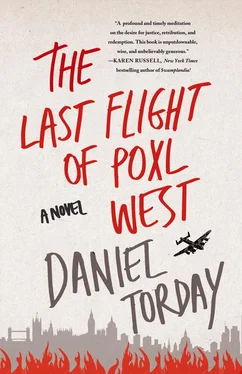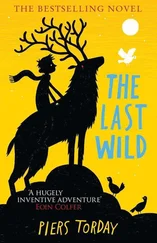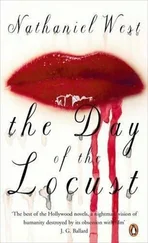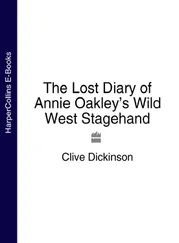I walked from Niny’s room to the small bedroom my cousins kept set up for me, and kept clear of Johana in the coming days.
Steering clear of Johana wasn’t hard, as soon word came of a massive fire in Knightsbridge. Clive’s face evinced a rare agitation. “Let us follow my directions, if just this once, then, Poxl,” he said.
Up one alleyway and back down the wide avenue, we raced north through the city, when suddenly I was jarred forward. My head smacked windshield, and for a moment I couldn’t tell if the darkness before my eyes was the backs of eyelids, or if it was night.
“Are you all right, Clive?” I said. I reached to turn on the overhead light. I struck a match and saw that Clive was fine. The refractory glint of glass particles floated in the air between us. Petrol vapors rose from the cab of the truck. The match burned down to my fingers. We were at rest.
“You’ve a trickle of blood on your forehead,” Clive said. He swabbed at it. A flash of white heat jumped above my left eye.
“I’ll be fine,” I said.
We had driven into a bomb crater. That was the end of our Chevy. Its nose was accordioned, and the vehicle tipped at a forty-five-degree angle to the street. Clive had a look of bewilderment. It was the last time I saw him influenced by the weight of outward events.
When we returned across the river by foot — we had been dispatched from Corbett’s Passage, at the end of London Bridge — there wasn’t much to be said except that the canteen truck had met its demise. Someone would have to clean it up. There was little time for reprimand, for the necessary bodies had to be put to work in the required capacities.
With our truck permanently removed from service and new needs facing London, Clive and I were shifted to a rescue squad. We spent our first week getting outfitted and then trained. Our squaddie uniforms bespoke pragmatism and officialdom. We wore black tin helmets with a bright white R on front. In the mid-autumn sun they would grow hot to the touch. Mine was heavy on my head, held on by a thin leather strap. We were provided with large blue coveralls, which we wore over our street clothes. In a matter of days we were provided full blue battle dress. I was no longer a disheveled Czechoslovak, alien to the land he’d set foot upon; instead I was a patriotic Briton. We were not on the offensive as were the boys of the Home Guard — but it was a step forward.
Each rescue squad truck had four rescuers, a driver, and a team leader. I was driver. Clive was team leader. Along with us was a rotating cast of four more men. There were three trucks like mine at Corbett’s Passage — tin-lined mortuary vans fitted with stretchers on their roof racks, with ample room inside for the six of us, equipped with shovels, pickaxes, ropes. Shifts started at eight in the morning. At a newsstand on our first day we watched as a small man Clive and I had often noted for his good humor was out chalking up a new message:
GERMANS CLAIM 1,000 TONS OF BOMBS ON LONDON. SO WHAT?
In the following days we were given the end of our first-aid training. By November I passed my exam. We worked twenty-four-hour shifts, riding about the city, waiting for the control center to call out an address. Fire wardens on rooftops all over the city spied blazes, then set off air raid sirens. A call would go to the control center, where they would send an incident officer out to coordinate the efforts of the fire brigade, whose job it was to tend to those who were trapped in the upper floors of the damaged buildings and then to put out the fires. Then we squaddies came to find any people trapped there.
As the autumn grew cold the Luftwaffe began a new campaign, dropping incendiary bombs, making it ever more important for us to reach bomb sites quickly, before the burning phosphorus gained purchase and set buildings — and bodies — ablaze.
7.
Winter descended on London like someone had flipped a switch. One cannot remember until the bone chill of winter has come how frigid air feels — how fifteen degrees Fahrenheit feels when it radiates past your top coat, your skin, into your bones.
That one must feel to remember.
We’d been granted moments of autumnal respite: false quiet in the first week of November, days of autumn rain when cloud cover was too dense for Luftwaffe sorties, the quiet of each afternoon before the blackout would go into effect and people retreated into their flats or shelters. I was reminded every day how absent love was in my life on those evenings. Something like that same muscle memory Françoise had told me about overtook the parts of my mind that could love: My hand longed to make a chord on the neck of the guitar, but there was no guitar. And I was the one who’d pawned it, my actions having left me without instrument. Time spent thinking about it was time spent alone, turning over in my mind the moment I’d boarded that ship. But always within a few days the bombs would come at night and drive time for such thoughts from mind, put off until the years that followed allowed all the time I needed to dwell on such things.
December brought the heaviest damage to the city yet. Buildings burned for nights on end. We worked following up the fire brigades everywhere we went. Days we assisted with the massive cleanup following each air raid. We were bombed every day for three months by five-hundred-pound explosives, which dropped more frequently than footfalls.
Christmas week brought a lull. There were few children for people to shop for; they’d been sent north. Shops on Oxford Street made a good show of it anyway. I’d never experienced Christmas in London. Mostly I kept quiet about my Judaism amid the goyim I worked alongside. Given the distinct loneliness and isolation that fact could elicit, in December I went to Johana and Niny’s to celebrate Hanukkah. I’d been spending most nights — after the bombing started in earnest — sleeping at Corbett’s Passage. Once a week I would return to the flat, hoping to see Niny, but even when she was home, she and I were exhausted from our work for the war effort. Our skin prickled from lack of sleep and yearning for Leitmeritz. We seldom talked. When we did, it was formalities on the way to our beds on the few nights I slept there, too exhausted to return to Corbett’s Passage. I would sit before the radio, listening to news of home or Holland, news that could never satisfy the building remorse I felt at having left Françoise behind.
The first night of Hanukkah, Johana was absent, off sitting her private shiva for Scott Prichard, allowing Niny and me to spend some time alone. Though it was the Festival of Lights, the room in the flat where we celebrated our holiday was dark. Winter was here. Day ended early. With blackout curtains drawn we were cast in darkness. Niny lit the shamas. She covered her eyes while she touched match to candle and chanted three baruchas. I hummed along, unafraid of looking straight at the cool, soothing light. Hannukah fire still put me at ease. When the candles were lit, Niny uncovered her eyes. We sat together and played driedel. It was the first I’d played since my childhood in Leitmeritz.
“This was in a pile down in the city,” I said. I handed Niny a small box. She unwrapped it to find a pair of silver earrings inlaid with amethyst. I’d found them at the edge of a pile of rubble near Fleet Street. On rescue missions I would sometimes pick up an unclaimed trinket to take home. I’d given her some singed magazines — never anything anyone would miss, only something I’d caught glinting in the morning sun. I would leave those things in Niny’s bedroom. The earrings I’d found a couple of weeks prior were the first thing someone might have missed, but — but Niny deserved them.
“Oh, thank you, Poxl, thank you,” Niny said. She put her arms around my neck and kissed my cheek. It was the first time I’d been touched in a long time, and something jumped in my bones, then settled. I helped her thread them into the delicate holes in her earlobes. The skin of her lobes drew taut. Four small creases appeared at top when the metal pulled down on them. My mind was given over to flashes of home, early memories of my mother, of a ride back north to Leitmeritz from Prague not a decade earlier, the rush of the Elbe calling up into my ears. And of course of Françoise. Had her American, who had promised to be with her and then left her, as I was beginning to see I, too, had, gifted her a necklace, spent quiet time with her? Thinking of her that way returned me to the very jealousy that had driven me from her. Every thought of Françoise was just that complicated: regret and Iago’s green-eyed monster, in lockstep.
Читать дальше












